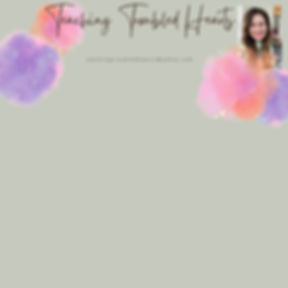Poetry as Therapy; Blackout Poetry
- mbickhaus
- May 21, 2018
- 3 min read
"We are stardust / We are golden/ And we've got to get ourselves / Back to the garden."
– Joni Mitchell
Those are lyrics from a song Joni Mitchell wrote about Woodstock.
Imagine giving a writing assignment to your students: Hey. Go to this wild music festival, and write a poem about the experience.
I think they’d be down for it.
While that type of assignment may be an option for you and your students, it’s not an option in my current teaching assignment. My principal is usually open to my crazier-sounding requests, but I think he’d draw the line at this!
However, I do have a poetry assignment that is incredibly-accessible to students, and it’s one that my students have really enjoyed. In fact, when I presented the assignment to a group of some of my most reluctant workers, I was amazed at their enthusiasm for the project – they asked to write a second one!
*Cue Angel Voices*
My students jumped into the task with vigor, and thought it was fun, but what they didn’t realizewas that I had a therapeutic purpose behind their poetry-writing assignment.
When students have been identified as having some sort of trauma as a result of negligence, abuse, loss, or any of a number of ACEs-related troubles, they are, hopefully, ushered into a formal plan which includes individual and group therapy. That plan usually includes a Trauma Narrative. Their ability to tell their story is an important step in their recovery process.
As classroom teachers, we can aid in that process.
Trauma Narratives are typically written over an extended period of time. Through the use of journals, story-writing, and poetry-writing, we can facilitate our students’ progress as they take steps through that Trauma Narrative-writing process.
And this brings us to an exciting, but easy and super-creative style of expression: Blackout Poetry!
Blackout Poetry is a wonderful type of verse with which to begin, because it’s so approachable. Our kids really don’t have to “write” the poem. It’s more like taking somebody else’s writing, and puzzling it together to form something personal. It’s a low-risk way for students to express themselves.
Here’s what I mean…


Blackout Poetry Directions:
Use pages of a discarded (or overly-loved) book. Magazines and newspapers will work as well. I’ve never done it, but some old music books might be fun!
Your students will take these pages, deconstruct the work, and reconstruct the writing to create something beautiful. It’s a metaphor for what has happened to the lives of kids who’ve experienced trauma.
Students quickly scan the text and find an “anchor word” which stands out to them. The anchor word is one which holds significant meaning for the student.
Students read the entire text with care. They use a pencil to very lightly circle words that have some sort of relationship with the anchor word and are, again, meaningful to the student.
Students list all of the circled words on a separate paper, making sure to maintain the order in which they appear on the page from which they are taken.
Students choose words, again maintaining the order, and create the lines of a poem. Eliminate any parts of words (prefixes/suffixes, etc.) if it helps to clarify the meaning of the poem.
Students go back to the text and circle only words that made the cut in their lists. Erase all circles from words which will not be used.
Students embellish the page with an illustration of their choice. The entire page will be an illustration with only the words of the created poem revealed.


Enjoy this creative process with your students.
I absolutely marveled at their focus and the pleasure they took in their work. There was so little risk for them. Even those who felt less artistically-apt could create something visually beautiful just by using color in a random way.
There was, however, nothing random about the purpose of this strategy. It provided an opportunity for students to create not only beauty, but meaning, and to gain a measure of control over their lives -- pure poetry, in and of itself.

